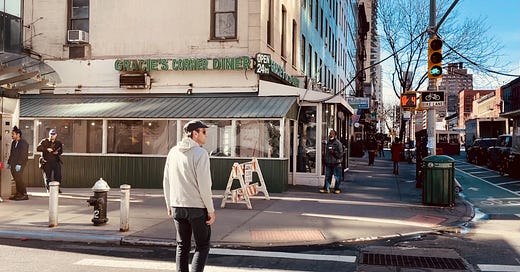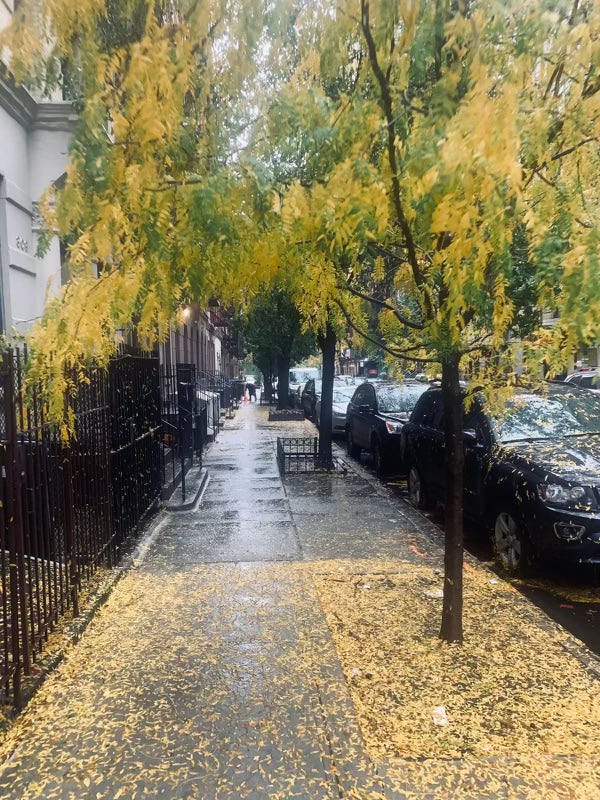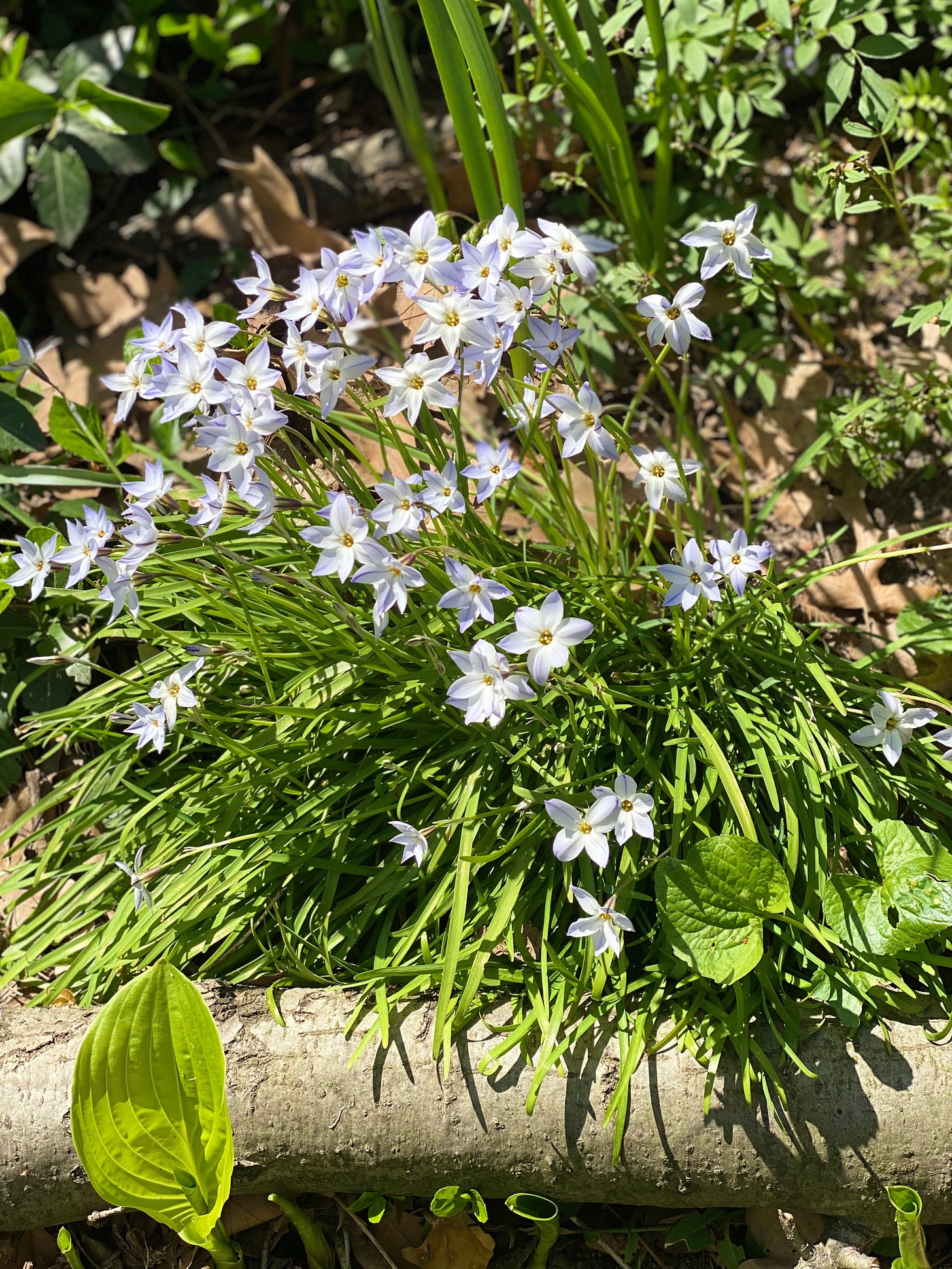I hope you enjoyed Episode 14 of Breakfast with an Alcoholic: My breakfast with Chris Dangerfield:
When I first met Chris and we were talking about the prospect of collaborating, he raised the concern that his views on sobriety might not be entirely compatible with mine.1 I started the podcast with the idea that there was value in having a series of casual, approachable and hopefully kind of funny conversations about addiction, recovery and sobriety from a number of perspectives and viewpoints. The simple fact is not nearly enough of us make it out and the misinformation, shame and stigma around addiction literally cost lives. I think it’s important to have conversations like this and to explore our differences—because that’s actually how you find common ground.
A big part of our discussion was around the idea of the disease model for addiction. Chris eloquently summed up the difficulty many people have with the idea that addiction is a disease and not just a series of poor choices:
No disease makes you punch your grandmother in the face to steal her wedding ring to buy drugs. You’re just an a**hole, mate.
It is very hard to understand the volitional element of alcoholism and addiction. When I was drinking, I’d put on my coat and shoes, walk out the door, lock it behind me, walk the four blocks to one of my preferred bars and drink. I wasn’t in a trance or blacked out. I knew exactly what I was doing and how to do it. I knew enough to lie about it.2 We alcoholics and addicts, during our active phases, well, it’s pretty undeniable that we do a lot of damage to people who have done nothing to deserve it.
The alcoholic is like a tornado roaring his way through the lives of others. Hearts are broken. Sweet relationships are dead. Affections have been uprooted. Selfish and inconsiderate habits have kept the home in turmoil…He is like the farmer who comes up out of his cyclone cellar to find his home ruined [and remarks] Ain’t it grand the wind stopped blowing?
Big Book, p. 82
It always felt hollow to tell the people who loved me and whom I hurt so terribly, “Sorry, it’s a disease.” That always struck me a little like this:
Back in 1939, Bill W. knew he wasn’t struggling just with inadequate willpower or poor judgment, he knew he was in thrall to a mysterious, misunderstood disease, but he thought he had found an answer:
We, of Alcoholics Anonymous, are more than one hundred men and women who have recovered from a seemingly hopeless state of mind and body. To show other alcoholics precisely how we recovered is the main purpose of this book.
Foreword to the First Edition of the Big Book
It’s undeniable that alcoholism and addiction are bona fide diseases, they’re listed in the DSM, there are objective diagnostic criteria and there is abundant evidence that the brains of alcoholics and addicts are structurally different. While the nature of the disease still defies adequate explanation3, we alcoholics know that first drink does something to us that doesn’t happen to civilian drinkers. As a Boy Scout making campfires, I learned that dry pine boughs burned really, really well. I think we alcoholics are a little bit like dried out pine trees—all it takes is one match, one drink and Whoosh! When you listen to Chris tell the story of his relapse in Thailand, well, not everyone who gets a prescription for Tramadol ends up with a Glock and a new linen suit.4
One thing that Chris and I definitely agreed on was that the remedy to our shared malady is enlarging our spiritual life. It doesn’t seem quite right to be sitting here in the middle of 2022 and writing a sentence that says that the remedy for a physical malady, a disease of the brain, is spirituality. There are not of ton of diseases that get treated almost exclusively by changing your thinking or reading a book—but here we are. I’m pretty sure not enough people recognize what a miracle it is that anyone makes it out—that it happens even 1% of the time is extraordinary. This is how Bill W. described it:
These were revolutionary and drastic proposals, but the moment I fully accepted them, the effect was electric. There was a sense of victory, followed by such a peace and serenity as I had never known. There was utter confidence. I felt lifted up, as though the great clean wind of a mountain top blew through and through. God comes to most men gradually, but His impact on me was sudden and profound.
Big Book, p. 14
Chris had some great musical choices and, as he pointed out, it’s all music by junkies:
The 4th of July holiday is upon us and I will be celebrating my independence from alcohol to be sure, but with a son in the Navy and with what’s going on in the world, I think it’s an important time to recognize that we owe quite a bit to the women and men who serve this country and take the solemn oath: “I will support and defend the Constitution of the United States against all enemies, foreign and domestic.” Those women and men, including my son, are willing to dedicate, even sacrifice, their lives to honor that oath. I think the 4th of July is a pretty appropriate time to honor those who have taken and honored that oath and serve our country nobly.
There will be a new episode of Breakfast with an Alcoholic this weekend. Until then, stay groovy5, go to a meeting and call your sponsor.
Thanks for Letting Me Share
Chris writes Dangerfield’s Exaggerations:
The lawyer in me would call this “consciousness of wrongdoing.”
Perhaps someone from the medical establishment can explain why, even after 80 years, they have been unable to come up with a treatment that delivers better results than a book written and self-published by an alcoholic in 1939. A special note to “Addiction Psychiatrists,” if you really want to help those of us in recovery, please, don’t write editorials in the New York Times with stupid headlines:
If you’re looking for a link to the podcast episode, it’s up at the very top!
Yes, I’ve used the word “groovy” quite a bit. If you say it’s four times, then it’s four times. No, I’m not sorry.









“I think it’s important to have conversations like this and to explore our differences—because that’s actually how you find common ground.”
Well said. It’s also a great way to learn new things and share ideas that you may never have known otherwise.
Hahaha “civilian drinkers” never heard it out that way, but it’s perfect.